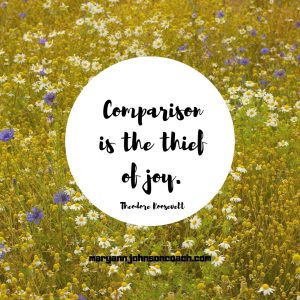 Some years ago, I decided to find out what I could do to improve my life the most.
Some years ago, I decided to find out what I could do to improve my life the most.
I wasn’t happy with what I discovered – stop complaining. I am still working on this one thing! It has been a challenge.
Then, after a few years, I looked to see if I could find a way to make more progress. I wasn’t sure how I felt about what I found – gratitude. I began a gratitude journal. When I wrote a few things each day, I felt better, happier, more charitable to others. But I wasn’t consistent.
In the spring of 2019, I got serious. I bought a notebook and hastily wrote Gratitude Journal and the date I began on the front. I was consistent until the fall holiday season. Then it dropped off. Despite this lapse, I had that notebook with me in Seattle at the beginning of 2020, just before Covid closed the airports. It helped me remain optimistic, and I made it home.
I began writing my gratitude statements in earnest, and as the year progressed, I felt the need to express my gratitude increase. Focusing on what I was grateful for made a big difference in my ability to stay mentally on top of an extraordinarily negative and sometimes frightening year. For Christmas this year, a friend of mine sent me an actual Gratitude Journal. A pretty one. I have enjoyed writing in it. It is keeping my spirits up.
Did you know that joy and happiness are born of gratitude? This is a lesson I have had to learn the hard way, over time, because raising a home full of children can be challenging!! Over the years, I said, “How can I be so grateful and ungrateful at the same time?” I said it so often that I was afraid my children would have it carved on my headstone. I was grateful for my home but….it needed a new carpet. I was thankful for my kids, but…I wished they wouldn’t fight. I loved my husband dearly, but …. why couldn’t he pick up his socks.
Does any of this sound familiar? Do you find yourself terribly grateful and ungrateful at the same time? This habit, and it is a habit, diminishes our joy and happiness. The truth is you cannot be grateful and ungrateful at the same time. If you are complaining, you are not grateful. I know, it hurts to hear!
Sarah Ban Breathnach, author of The Simple Abundance Journal of Gratitude, said, “Both abundance and lack exist simultaneously in our lives, as parallel realities. It is always our conscious choice which secret garden we will tend . . . when we choose not to focus on what is missing from our lives but are grateful for the abundance that’s present—love, health, family, friends, work, the joys of nature, and personal pursuits that bring us —the wasteland of illusion falls away, and we experience heaven on earth.”
How are gratitude and happiness connected? Why does it matter whether we see the glass half-full or half-empty?
Let me refer to two stories found in the Christian Bible that are beautiful examples of a broader view of gratitude than just having a good feeling when things are going our way.
In the book of Luke, chapter 17, we read the story of Christ passing through Samaria and Galilee. In a village, he met ten lepers who cried out to him, “Master, have mercy on us.” Jesus sent them to the priest, and as they went, they were healed. One turned back and, with a loud voice, thanked Jesus. Jesus asked, “Were there not ten cleansed? Where are the other nine?”
Jesus didn’t need their thanks, but he knew that gratitude is an uplifting and exulting attitude. We cannot be bitter, resentful, or mean-spirited when we are grateful. We choose to serve when we are grateful. Being grateful would help those nine healed men to live more joyously and generously. He wanted them to have that experience, and they, through their lack of gratitude, missed out.
In the book of Matthew, we have another account of gratitude, this time as an expression from Jesus. Jesus had traveled in the wilderness for three days, and more than 4,000 people followed Him. He took compassion on them and wanted to feed them. His disciples, however, questioned, “Whence, should we have so much bread in the wilderness, as to fill so great a multitude?” Like many of us, the disciples saw only what was lacking.
“And Jesus saith unto them, How many loaves have ye? And said, Seven, and a few little fishes.
“And commanded the multitude to sit down on the ground.
“And he took the seven loaves and the fishes, and gave thanks, and brake them, and gave to his disciples, and the disciples to the multitude.”
Notice that the Savior gave thanks for what they had—and a miracle followed: “And they did all eat and were filled: and they took up of the broken meat that was left seven baskets full.”
We have all experienced times when our focus is on what we lack rather than on our blessings. These are the times when we find ourselves complaining either by word, action, inaction or in our hearts.
It isn’t always easy to be grateful. But if we commit to being grateful more often, seek the help we need to make it a practice, and then persevere for as long as it takes, it can become our way of being, not just a feeling. That path is what Jesus wanted for the nine healed men. He knew that if they practiced gratitude, they would be happier down the road when things got tough again. He also knew that the grateful energy we send out can create miracles in our lives.
Ten Gratitude Tools
If you feel overwhelmed, resentful of your spouse or children, blame others regularly, feel like a victim, or feel you are missing essential blessings, I encourage you to consider working seriously on your state of gratitude. Next week I will share ten GRATITUDE tools that can help anyone become more grateful. Choose just one and start.
If you feel that you are already grateful, I hope you will accept the challenge to practice one of the ten tools anyway. You may be as surprised as I was when I took the challenge to stop complaining and become more grateful. I wasn’t as appreciative as I thought, and I complained far more than I knew. See you next week.


 Today I want to tell you about my brother Boe Dean, his life, struggles, and the hard lesson I learned on the day he died, January 22, 2021.
Today I want to tell you about my brother Boe Dean, his life, struggles, and the hard lesson I learned on the day he died, January 22, 2021.




 Two years ago was my 50th high school reunion. I didn’t go. Our family was moving into a new home. The reunion was in Greeley, Colorado, a whole different state. I only went to Greeley West High School for my senior year, and I never really connected. I had friends and was involved on the school radio, worked on the yearbook, did a couple of plays, etc. I was involved but hovered in the background. Just my face in the yearbook.
Two years ago was my 50th high school reunion. I didn’t go. Our family was moving into a new home. The reunion was in Greeley, Colorado, a whole different state. I only went to Greeley West High School for my senior year, and I never really connected. I had friends and was involved on the school radio, worked on the yearbook, did a couple of plays, etc. I was involved but hovered in the background. Just my face in the yearbook.
 “A 92-year-old, petite, well-poised and proud man, who is fully dressed each morning by eight o’clock, with his hair fashionably combed and shaved perfectly, even though he is legally blind, moved to a nursing home today. His wife of 70 years recently passed away, making the move necessary. After many hours of waiting patiently in the lobby of the nursing home, he smiled sweetly when told his room was ready.
“A 92-year-old, petite, well-poised and proud man, who is fully dressed each morning by eight o’clock, with his hair fashionably combed and shaved perfectly, even though he is legally blind, moved to a nursing home today. His wife of 70 years recently passed away, making the move necessary. After many hours of waiting patiently in the lobby of the nursing home, he smiled sweetly when told his room was ready.
 When my grandson, Jack, was three, Mary was just one and Maggie was five, I taught them about germs and hygiene. It was chaotic. Mary was on the table and into everything. Jack wanted his way. Maggie, of course, needs LOTS of help. Whew. Did they get any of that? Despite all my preparation and planning, I was sure that the whole thing had been a big fat flop!
When my grandson, Jack, was three, Mary was just one and Maggie was five, I taught them about germs and hygiene. It was chaotic. Mary was on the table and into everything. Jack wanted his way. Maggie, of course, needs LOTS of help. Whew. Did they get any of that? Despite all my preparation and planning, I was sure that the whole thing had been a big fat flop!
 As a parent or grandparent do you ever
As a parent or grandparent do you ever 

 decided to make a change. It wasn’t easy because of the past. People weren’t sure they could trust him and so they didn’t want to risk giving him a chance. He just kept looking and eventually, he found a man and a company that employed him.
decided to make a change. It wasn’t easy because of the past. People weren’t sure they could trust him and so they didn’t want to risk giving him a chance. He just kept looking and eventually, he found a man and a company that employed him.  education or the degree that thrills me. It’s that he was kind to himself, trusted himself, set a goal and then accomplished it.
education or the degree that thrills me. It’s that he was kind to himself, trusted himself, set a goal and then accomplished it.

 I’ve been married to the same man for 48 years. We celebrated this milestone in May of 2019. This has caused me to pause and contemplate the last fifty-one years. That’s how long I’ve known my husband, Don. I fell in love with him because he was handsome and romantic. One day he showed up at my door with a car full of roses. He had cleaned out a street vendor! But that isn’t why I’ve stayed with him.
I’ve been married to the same man for 48 years. We celebrated this milestone in May of 2019. This has caused me to pause and contemplate the last fifty-one years. That’s how long I’ve known my husband, Don. I fell in love with him because he was handsome and romantic. One day he showed up at my door with a car full of roses. He had cleaned out a street vendor! But that isn’t why I’ve stayed with him. me. He often goes out of his way to do something he knows I need to have done. He looks at me when I am talking to him. He takes the time to listen. He doesn’t always get what I am saying but he listens and tries. : ) He often puts his needs ahead of mine.
me. He often goes out of his way to do something he knows I need to have done. He looks at me when I am talking to him. He takes the time to listen. He doesn’t always get what I am saying but he listens and tries. : ) He often puts his needs ahead of mine. There is a space between stimulus and response. Sometimes it’s so narrow that you would swear it isn’t even there. But it is and you can learn to recognize the moment of choice. You will still respond poorly for a time, but eventually, that space between stimulus and response will get wider and you will have time to choose a better response. I promise this is true!
There is a space between stimulus and response. Sometimes it’s so narrow that you would swear it isn’t even there. But it is and you can learn to recognize the moment of choice. You will still respond poorly for a time, but eventually, that space between stimulus and response will get wider and you will have time to choose a better response. I promise this is true!